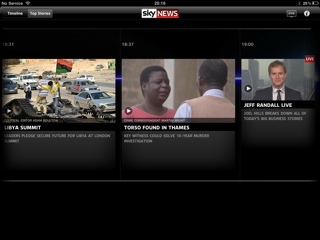Moaning to the media
Every now and again, I find myself moaning to Sky News about some report or other they’re running, usually on a medical topic. This might put me in the same box as the green-ink angry brigade of old, but I kind of hope it doesn’t.
Sky News is normally the outlet on the receiving end of my moans because Wendy likes to watch Sunrise in the mornings, so they tend to be the ones to irk me when I’m sleepy-eyed and vulnerable. Usually, they’ve misunderstood the findings of some piece of research, or are giving advice that needs a little more nuance. Generally, I fire off an email to them, and they correct either their script or package pretty quickly, or else get back to me to explain why they won’t. I actually think I have a pretty good relationship with them.
A few years ago when the whole MTAS debacle was kicking off in the medical world, I helped Channel 4 News with some of their reporting, and also found them really helpful, willing to listen to my explanations, and good at accurate reportage.
Until a couple of weeks ago, I don’t think I’ve ever complained about a BBC News report. But then, the BBC News website published this article about the Queen’s faith role. This couldn’t be further from the stuff I’d usually moan about, but the report was based on a COMRES poll, and originally opened with the claim that 80% of the population supported the Queen’s faith role. I didn’t believe this, and so checked out the original data on the COMRES website, which revealed that 80% responded positively to a question about whether the Queen has a faith role. This is, of course, different from giving support – it’s a question of fact, and, as the Queen is the head of the Church of England, it seems pretty undeniable that she has a faith role, whether or not it’s supported.
So I fired off an email. And, within hours, the article was changed to the current version, which reports the actual survey findings more accurately. What I hadn’t anticipated, and hadn’t had from any other outlet, was that the Religion Editor gave me a call. We had a great chat in which he explained how the article had come about, how the mistake had been made, and also a general talk about the complex rules that the BBC has around commissioning surveys. This was fantastic.
So what’s my point? Essentially, any time I personally have moaned to a media outlet about a factual reporting error, I’ve received a positive response. Granted, it would be better that the mistakes weren’t there in the first place, and it’s probably true that not all sections of the media are as responsible as those I’ve been involved with.
But journalists are humans too. They make mistakes, and many of them seem happy to have these corrected. Leveson might give the impression that all journalists are unethical idiots, and Blair might think they’re feral beasts, but some journalists are just doing a bloody hard job as well as they can, with the utmost professionalism.
I know it’s not a popular view at the moment, but maybe we can consider giving journalists a break sometimes? Just a thought.
This post was filed under: Media, News and Comment, BBC News, Channel 4 News, Journalism, Sky News.
 So, as a Sky News viewer, the iPad App has been marketed very heavily at me. Frankly, I’m fed up of seeing the adverts.
So, as a Sky News viewer, the iPad App has been marketed very heavily at me. Frankly, I’m fed up of seeing the adverts. Conclusion: I hate it.
Conclusion: I hate it.